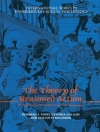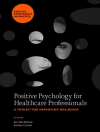Recent years have seen an explosion of research into the physiological and neural bases of social behavior. This state-of-the science handbook is unique in approaching the topic from a developmental perspective. Exploring the dynamic relationship between biology and social behavior from infancy through adolescence, leading investigators discuss key processes in typical and atypical development. Chapters address emotion, motivation, person perception, interpersonal relationships, developmental disorders, and psychopathology. The volume sheds light on how complex social abilities emerge from basic brain circuits, whether there are elements of social behavior that are ‘hard wired’ in the brain, and the impact of early experiences. Illustrations include 8 color plates.
Table des matières
I. Introduction1. The Brain in a Social Environment: Why Study Development?, Michelle de Haan and Megan R. Gunnar II. Methodological and Biological Background2. Methods in Social Neuroscience: Issues in Studying Development, Megan R. Gunnar and Michelle de Haan3. Neuroanatomy of the Developing Social Brain, Christa Payne and Jocelyne Bachevalier III. Perceiving and Communicating with Others 4. Neural Bases of the Development of Face Processing, Olivier Pascalis, David J. Kelly, and Gudrun Schwarzer5. Decoding Social Signals in the Infant Brain: A Look at Eye Gaze Perception, Tobias Grossmann and Teresa Farroni6. The Development and Neural Bases of Processing Emotion in Faces and Voices, Michelle de Haan and Anna Matheson 7. The Development of Social Information Gathering in Infancy: A Model of Neural Substrates and Developmental Mechanisms, Leslie J. Carver and Lauren Cornew8. Imitation as a Stepping Stone to Empathy, Jean Decety and Meghan Meyer9. Mentalizing and Development during Adolescence, Suparna Choudhury, Tony Charman, and Sarah-Jayne Blakemore10. Early Communicative Development and the Social Brain, Debra Mills and Barbara T. Conboy11. Evolutionary Origins of Social Communication, Makaso Myowa-Yamakoshi and Masaki Tomonaga IV. Relationships12. Attachment and the Comparative Psychobiology of Mothering, Andrea Gonzalez, Leslie Atkinson, and Alison S. Fleming13. Neuroendocrine Mechanisms of Social Bonds and Child–Parent Attachment, from the Child’s Perspective, Karen L. Bales and C. Sue Carter14. Neurobiology and Hormonal Aspects of Romantic Relationships, Donatella Marazziti15. Animal Models of Romantic Relationships, Joel C. Wommack, Yan Liu, and Zuoxin Wang V. Regulatory Systems: Motivation and Emotion16. Temperament and Affect Vulnerability: Behavioral, Electrocortical, and Neuroimaging Perspectives, Louis A. Schmidt and Michelle K. Jetha17. Reward Systems, Monique Ernst and Linda Patia Spear18. Social Relationships as Primary Rewards: The Neurobiology of Attachment, Linda C. Mayes, Jessica Magidson, C. W. Lejuez, and Sarah S. Nicholls19. A Brain-Based Account of Developmental Changes in Social Decision Making, Eveline A. Crone and P. Michiel Westenberg VI. Perspectives on Psychopathology 20. A Social Neuroscience Approach to Adolescent Depression, Daniel S. Pine21. The Development and Neural Bases of Psychopathy, Robert James Richard Blair, Elizabeth Finger, and Abigail Marsh22. Autism: Risk Factors, Risk Processes, and Outcome, Geraldine Dawson, Lindsey Sterling, and Susan Faja23. Social and Genetic Aspects of Turner, Williams–Beuren, and Fragile X Syndromes, David Skuse and Louise Gallagher24. The Effects of Early Institutionalization on Social Behavior and Underlying Neural Correlates, Bethany C. Reeb, Nathan A. Fox, Charles A. Nelson, and Charles H. Zeanah25. Socioemotional Development Following Early Abuse and Neglect: Challenges and Insights from Translational Research, M. Mar Sanchez and Seth D. Pollak
A propos de l’auteur
Michelle de Haan, Ph D, is Reader in Developmental Cognitive Neuroscience in the Institute of Child Health at University College London. Dr. de Haan’s research applies neuroimaging and neuropsychological methods to examine the neural correlates of typical and atypical cognitive and social development. She has published over 70 articles, books, and book chapters in this area, and is Associate Editor of the journal Developmental Science. Megan R. Gunnar, Ph D, is Regents Professor of Child Development in the Institute of Child Development at the University of Minnesota. Dr. Gunnar’s research focuses on stress biology and the role of early adversity in shaping stress, emotion, and cognitive functioning in the developing child. She has published over 150 articles, chapters, and edited volumes in this area.












